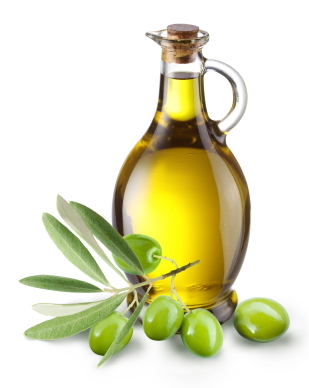 The Mediterranean diet has long been espoused for health benefits. Besides being delicious, the Mediterranean diet has been found to reduce incidents of heart disease, Parkinson’s, and Alzheimer’s (Mayo Clinic). It also helps people lose weight. Could olive oil kill cancer cells too?
The Mediterranean diet has long been espoused for health benefits. Besides being delicious, the Mediterranean diet has been found to reduce incidents of heart disease, Parkinson’s, and Alzheimer’s (Mayo Clinic). It also helps people lose weight. Could olive oil kill cancer cells too?
What is the Mediterranean diet?
Olive oil is plentiful in the Mediterranean diet. There really isn’t one specific Mediterranean diet, although we talk as if there is one, there are similarities between the countries that border the sea.
US News & World Report explains:
Greeks eat differently from Italians, who eat differently from the French and Spanish. But they share many common understandings. Working with the Harvard School of Public Health, Oldways, a nonprofit food think tank in Boston, developed a consumer-friendly Mediterranean diet pyramid that emphasizes fruits, veggies, whole grains, beans, nuts, legumes, olive oil and flavorful herbs and spices; eating fish and seafood at least a couple of times a week; enjoying poultry, eggs, cheese and yogurt in moderation; and saving sweets and red meat for special occasions. Top it off with a splash of red wine (if you want), remember to stay physically active and you’re set.
Could olive oil kill cancer cells?
A new study published in Molecular and Cellular Oncology, a peer-reviewed journal, has found oleocanthal, a newly discovered ingredient in olive oil, “ruptures a part of the cancerous cell, releasing enzymes that cause cell death”.
Environment News Service reports:
David Foster and Onica LeGendre of Hunter College, and Paul Breslin, professor of nutritional sciences in Rutgers’ School of Environmental and Biological Sciences, report that oleocanthal kills cancerous cells in the laboratory by rupturing vesicles that store the cell’s waste…
After applying oleocanthal to the cancer cells, Foster and LeGendre discovered that the cancer cells were dying very quickly – within 30 minutes to an hour.
Since programmed cell death takes between 16 and 24 hours, the scientists realized that something else had to be causing the cancer cells to break down and die.
LeGendre, a chemist, provided the answer. The cancer cells were being killed by their own enzymes. The oleocanthal was puncturing the vesicles inside the cancer cells that store the cell’s waste – the cell’s “dumpster,” as Breslin called it, or “recycling center,” as Foster refers to it.
These vesicles, known as lysosomes are larger in cancer cells than in healthy cells, and they contain a lot of waste.
“Once you open one of those things, all hell breaks loose,” Breslin said.
But oleocanthal did not harm healthy cells, the researchers found. It merely stopped their life cycles temporarily, “put them to sleep,” Breslin said. After a day, the healthy cells resumed their cycles.
The researchers say the logical next step is to go beyond laboratory conditions and show that oleocanthal can kill cancer cells and shrink tumors in living animals…
In the Mediterranean contries, consumption of olives or olive oil has long been considered important for preserving a healthy and relatively disease-free population. And the incidence of cancer overall in Mediterranean countries is lower than in Scandinavian countries, the UK and the United States.
The World Health Organization reports that in 2012 there were more than 14 million new cases of cancer. Eight million deaths were attributed to cancer that year. It’s exciting to think a natural compound could be the cure!
Virgin olive oil works as well as ibuprofen as an anti-inflammatory
Oleocanthal is present in [amazon_link id=”B0006Z7NPO” target=”_blank” ]virgin olive oil[/amazon_link]. This compound has been found to have anti-inflammatory properties as well. The authors of “Molecular mechanisms of inflammation. Anti-inflammatory benefits of virgin olive oil and the phenolic compound oleocanthal” found,
A traditional Mediterranean diet has been shown to confer some protection against the pathology of chronic diseases through the attenuation of pro-inflammatory mediators and this has been partially attributed to the high intake of virgin olive oil accompanying this dietary regime. Virgin olive oil contains numerous phenolic compounds that exert potent anti-inflammatory actions. Of interest to this paper is the recently discovered phenolic compound oleocanthal. Oleocanthal is contained in virgin olive oil and possesses similar anti-inflammatory properties to ibuprofen. This pharmacological similarity has provoked interest in oleocanthal and the few studies conducted thus far have verified its anti-inflammatory and potential therapeutic actions.
Consuming more olive oil in your family’s diet has many benefits. If you suffer from inflammatory issues, trying adding more olive oil into your diet.
Since oleocanthal is newly discovered, we should expect more research in how it can be used to prevent and treat cancer. I feel very optimistic!
[amazon_enhanced asin=”B0006Z7NPO” /][amazon_enhanced asin=”B004ULUVU4″ /][amazon_enhanced asin=”B0060JMVM0″ /]
Leave a Reply